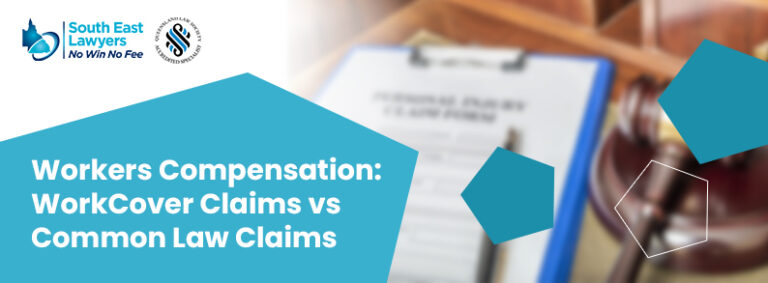Navigating the legal system after an accident can be a daunting and confusing experience. Common misconceptions surrounding personal injury claims can exacerbate the situation, often leading to claimants making ill-informed decisions. In this post, we will be debunking misconceptions to provide you with the facts, empowering you to make the best choices for your unique circumstances.
By understanding the complexities of personal injury claims, the importance of adhering to time limits, and the true cost of hiring a personal injury lawyer, you will be better equipped to pursue compensation for your injuries and move forward with your life. Let’s dive into these common myths and set the record straight.
Key Takeaways
- Common misconceptions about personal injury claims can lead to costly delays and forfeiting the right to compensation.
- Hiring a legal expert is essential for maximising chances of success, with many firms offering accessible solutions such as “no win, no fee” arrangements.
- The typical claim process involves consulting with an expert, gathering evidence and documentation, negotiating/settling or pursuing a lawsuit.
The truth about personal injury claims
Countless misconceptions surround personal injury claims, often leading individuals to make hasty decisions without fully understanding their rights and responsibilities. For instance, many believe that personal injury claims are simple to navigate and that there’s no rush to make a claim. In reality, these claims can be quite complex, and strict time limitations exist that can affect one’s ability to seek compensation. Furthermore, the misconception that hiring a personal injury lawyer is costly can deter potential claimants from seeking the help they desperately need.
This post aims to debunk these myths and equip you with essential information for navigating the legal system and pursuing compensation successfully for your injuries. We will also explain the role of firms like South East Injury in assisting you throughout the claim process, ensuring your best interests are protected.
Myth #1: Personal Injury Claims are Easy
As we touched on above, one very common myth is that personal injury claims are easy, even when they involve a serious injury or minor injuries. The truth is that these claims can be quite complicated, requiring a deep understanding of legal procedures and evidence collection. This misconception can lead individuals to take their time in seeking legal counsel or doing so without comprehending the intricacies of the process.
Recognising the complexities of personal injury claims prepares you better to steer through the legal landscape and make informed decisions serving your best interests. We will delve into the legal procedures and evidence collection requirements that increase the complexity of these claims.
Legal Procedures
Navigating the legal system can be challenging, requiring knowledge of specific laws and regulations that pertain to personal injury claims. For example, it is necessary to report any work-related injuries in writing as soon as is reasonably possible and gather further information to support the claim. Furthermore, legislation such as the Workers Compensation and Injury Compensation Act of 1981 was established to protect the best interests of injured workers.
The legal procedures for personal injury claims generally include:
- Reporting the incident or injury
- Obtaining medical advice (including assessments of affected brain areas if applicable)
- Submitting a claim
- Obtaining legal advice
- Collecting data and evidence
- Filing a damages claim
- Evaluating damages
- Negotiating a settlement
Being aware of these procedures and adhering to them closely can help ensure a successful outcome.
Evidence Collection
Assembling and presenting pertinent evidence is vital for a successful personal injury claim. Proper documentation and evidence can make or break your claim, as they serve as proof of the injury and the damages caused by it. Without this evidence, it can be challenging to validate the claim and acquire the deserved compensation.
For personal injury claims, the following documentation is usually required:
- Medical records
- Photographs or videos of the accident scene
- Witness statements
- Police reports
- Any other pertinent documentation such as insurance information or accident reports
Prompt collection of evidence is imperative as any delay increases the potential for the evidence to be lost or destroyed. Recent studies have shown the importance of timely action in such cases.
The Need for Legal Expertise and Guidance
Legal expertise and guidance are essential to guarantee that your personal injury claim is managed correctly and that you obtain the utmost compensation feasible, based on the absolute truth of the situation. Although it is possible to manage a personal injury claim without the assistance of a legal professional, it is typically advisable to seek the advice of a seasoned personal injury lawyer to ensure the truth of the situation is accurately represented.
South East Injury Lawyers provides the following legal services to assist claimants in navigating personal injury claims:
- Acting as representatives for clients to negotiate equitable remuneration for damages incurred during an incident
- Collecting pertinent evidence
- Promoting clients’ interests
- Liaising with insurance companies
- Striving to resolve legal disputes
- Evaluating the viability of a case
Myth #2: There’s No Rush to Make a Claim
Another common misconception is that there’s no rush to make a personal injury claim. This myth can result in claimants missing crucial deadlines or statutes of limitations, which can negatively impact their ability to seek compensation. Time limits and statutes of limitations are in place to ensure that legal disputes are addressed promptly and to protect the rights of both parties involved.
Comprehending the importance of following these time-sensitive deadlines helps you avoid possible repercussions of delayed claims, such as forfeiting your right to seek compensation. We will examine:
- The time limits for filing personal injury claims
- The statutes of limitations for personal injury claims
- The potential repercussions of delaying your claim
Time Limits and Statutes of Limitations
Personal injury claims have specific deadlines that must be met to be eligible for compensation. Statutes of limitations are laws that set a specific time period within which legal proceedings must be initiated. These time limits vary depending on the jurisdiction and the type of claim, ranging from one to ten years, with two to three years being the most common. It is imperative to be cognisant of the statute of limitations for your specific case to ensure that your claim is filed within the requisite timeframe.
For example, the deadline for submitting a personal injury claim is three years from the date of the incident or accident. If the claim is on behalf of a minor, the time limit remains three years but commences from the minor’s eighteenth birthday. Failure to submit a claim within these timeframes may result in forfeiting the right to seek legal redress.
Speaking to an experienced personal injury lawyer as soon as possible is a great idea to ensure that any claim is made within the relevant time limits as they will be aware of the most up to date information and the variables that could impact your situation.
Consequences of Delayed Claims
Failing to file a claim within the required time frame can result in losing the right to compensation. For instance, if a claimant is injured in a car accident and does not submit a claim within the specified time frame, they may be precluded from filing a claim in the future and may not be eligible for remuneration for their injuries.
Adhering to the specified time period for filing a claim is essential, as it guarantees that the claimant is qualified to receive remuneration for their injuries. Should the claim not be filed within the required time frame, the claimant may forfeit their entitlement to compensation and face the potential of being precluded from filing a claim in the future.
Myth #3: Hiring a Personal Injury Lawyer is Costly
The misconception that hiring a personal injury lawyer is costly often deters individuals from seeking the legal assistance they need. This myth may prevent claimants from obtaining proper representation and support during their personal injury claim process. However, the reality is that many firms, like us here at South East Injury Lawyers, offer “no win, no fee” arrangements to make legal assistance more affordable and accessible for those in need.
A “no win, no fee” arrangement (also called a contingency fee structure) indicates that the claimant will not be liable for any legal fees unless a settlement amount is obtained. This makes legal assistance more accessible and affordable, allowing individuals to seek representation without worrying about the initial costs associated with hiring a lawyer.
The contingency fee structure also enables individuals who are unable to pay for upfront legal fees to gain access to legal representation. The advantage of the contingency fee structure for claimants is that they are able to obtain legal assistance without any initial costs, paying only if compensation is granted.
For example, at South East Injury Lawyers we only impose our fees following the receipt of compensation claims by the claimant. This type of arrangement provides a risk-free option for those seeking legal representation, as they can pursue their claim without worrying about the financial burden associated with hiring a lawyer.
Moreover, there are organisations and funds that may cover initial costs for disbursements but not for legal fees.
The Claim Process
The personal injury claim process can be complex and requires careful attention to detail. From consultation with a legal expert to gathering evidence, negotiation, settlement, and possibly pursuing a lawsuit, each step is critical to the success of your claim. Understanding each phase of the process and the importance of seeking legal expertise will ensure that you are better prepared to navigate the legal landscape and achieve a favourable outcome.
The Personal Injury Claim Process
An overview of the steps involved in pursuing a personal injury claim includes:
- Consulting with a legal specialist
- Assembling evidence and documentation
- Bargaining and settlement
- Possibly initiating a lawsuit
Each step serves a specific purpose and contributes to the overall success of your claim.
For example, consulting with a legal expert can furnish advice on the legal proceedings involved, assist in amassing evidence and documentation, and mediate a settlement on one’s behalf. Gathering evidence and documentation is essential for demonstrating the legitimacy of a personal injury claim and establishing liability. Negotiating a settlement is important as it can guarantee that the claimant obtains an equitable and appropriate amount of compensation for their injuries.
The Importance of Consulting with a Legal Expert
Legal expertise is crucial for navigating the complexities of personal injury claims. Consulting with a legal expert provides:
- Direction and counsel on the optimal course of action for your claim, ensuring that you are aware of your rights and obligations
- Assistance in gathering the necessary evidence and documentation for your claim
- Representation in negotiations and legal proceedings if necessary
By seeking the advice of a legal expert, you can significantly enhance your chances of attaining a desirable result in your legal matters. Failure to consult with a legal expert may result in unfavourable outcomes and a lack of awareness of your rights and options.
The Need for Gathering Evidence and Documentation
Proper documentation and evidence are essential for a successful personal injury claim. Compiling evidence and documentation is of great significance as it can assist in establishing the legitimacy of a personal injury claim and guarantee that the claim is valid. Without proper evidence, it can be challenging to validate the claim and to acquire the deserved compensation.
Evidence that should be gathered for a personal injury claim includes:
- Medical records
- Witness statements
- Photographs
- Other pertinent documents
Prompt collection of this evidence is imperative as any delay increases the potential for the evidence to be lost or destroyed, making research efforts more challenging.
The Negotiation and Settlement Phases
Negotiating and settling a claim are important steps in the personal injury claim process. The negotiation and settlement phases involve the claimant and the defendant engaging in discussions to determine an agreeable settlement amount, which is then paid to the claimant. Achieving an accord with the other party is of great importance as it can prevent the need for costly and time-consuming litigation.
It is important to remember that the negotiation and settlement phase requires skill and a deep understanding of the legal landscape. By consulting with a legal expert, you can ensure that your best interests are represented and that you receive the compensation you deserve.
The Option of Pursuing a Lawsuit
If a settlement cannot be reached, a lawsuit may be necessary to seek compensation. The option of pursuing legal action involves commencing civil proceedings by submitting a form referred to as a Statement of Compensation Claim in the local or district courts. Generally, there is a fee for filing this claim.
Before initiating a lawsuit, exploring other dispute resolution options, such as arbitration, mediation, and negotiation is generally advised. However, if an agreement cannot be reached, pursuing legal action may be the best course of action to ensure that you receive the compensation you deserve.
Conclusion
Comprehending the complexities, time limits, and costs linked to personal injury claims is vital for successfully pursuing compensation. By debunking common myths and misconceptions, you can confidently make informed decisions and navigate the legal landscape. Remember, consulting with a legal expert and gathering the necessary evidence and documentation are key to the success of your claim. As you move forward with your personal injury claim, keep in mind the importance of adhering to time-sensitive deadlines, exploring “no win, no fee” arrangements, and seeking the guidance of experienced legal professionals. Armed with this knowledge, you are well-equipped to seek the compensation you deserve and achieve a favourable outcome in your case.






